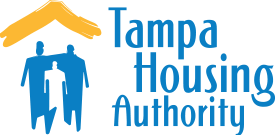Housing Opportunity through Modernization Act (HOTMA)
On July 29, 2016, HOTMA (Housing Opportunity through Modernization Act) was signed into law. HOTMA makes numerous amendments to Sections 3, 8, and 16 of the United States Housing Act of 1937(1937 Act), including significant changes to income calculation, net family assets, and income reviews.
HUD finalized HOTMA rulemaking in 2023 to put Sections 102, 103, and 104 into effect through revisions to HUD's regulations found in 24 CFR Part 5 and 24 CFR Part 891.
• Section 102 addresses income reviews, including the frequency of income reviews and revises the definitions of income and assets.
• Section 103 is not applicable to multifamily housing programs.
• Section 104 sets asset limits for both Section 8 Project-Based Rental Assistance and Section 202/8 programs.
HOTMA implementation has been delayed by HUD
The Final Rule implementing Sections 102, 103, and 104 of the Housing Opportunity Through Modernization Act of 2016 (HOTMA) delivers important benefits to tenants and reduces administrative burdens for public housing agencies (PHAs), multifamily housing owners (MFH owners), and participating jurisdictions. The highlights of the Final Rule are outlined below.
Section 102: Income Reviews
• Fewer Interim Reexaminations: HOTMA creates a 10% adjusted income increase/decrease threshold for conducting Interim Reexaminations, and in most cases requires that increases in earned income are not processed until the next Annual Reexamination, allowing families to keep more of their earnings before receiving a rent increase. The new requirements should lead to fewer Interim Reexaminations overall, alleviating burden for both participants and PHAs.
• Streamlined Verifications: Several provisions will streamline the verification process for housing providers.
o Adults Only Need to Sign Consent Form Once: HOTMA revises the required consent form that all adult household members sign, allowing them to sign the form only once instead of annually.
o Use of Income Determinations from Other Programs: HOTMA allows PHAs to use income determinations made under other federal benefits programs for reexaminations.
o Review of EIV Not Required at Interim Reexamination: HOTMA eliminates the requirement for PHAs to use EIV to verify tenant employment and income information during an interim reexamination, significantly reducing administrative burden.
• Increased Standard Deduction for Elderly/Disabled Households: HOTMA increases standard deductions for families with a head, co-head, or spouse who is elderly or a person with a disability.
• Additional Income Exclusions: The rule codifies additional income and asset exclusions, including:
o Amounts received from Medicaid or other state/local programs meant to keep a family member with a disability living at home
o Veterans' aide and attendant care
o Distributions of principal from non-revocable trusts, including Special Needs Trusts.
• Threshold for Claiming Medical/Disability Expenses Increased: HOTMA increases the allowance for unreimbursed health and medical care expenses from 3% of annual income to 10%, phased-in over two years.
• Higher Threshold for Imputing Asset Income: HOTMA raises the imputed asset threshold from $5,000 to $50,000, incentivizing families to build wealth without imputing income on those assets.
• Hardship Relief: HOTMA provides hardship relief for expense deductions, lessening the impact of the increased threshold for medical expenses. HOTMA permits PHAs to grant hardship relief to families unable to pay rent because of unanticipated medical/disability expenses and families who are no longer eligible for the childcare expense deduction.
Section 103: Public Housing Income Limit
• Public Housing Income Limitation: HOTMA imposes continued program participation limits for families exceeding the statutory income limitation in the Public Housing program, also known as the "over-income" provision.
Section 104: Asset Limits
• Asset Limitation: HOTMA imposes a $100,000 asset limit for eligibility and continued assistance. Families are also ineligible for assistance if they own real property suitable for occupancy. PHAs have the option of delaying enforcement/termination for up to six months if the family is over the asset threshold at the time of annual reexamination.
• Exclusion of Retirement and Educational Savings Accounts: Retirement accounts and educational savings accounts will not be considered a net family asset. This is a major benefit to families, incentivizing savings for important life milestones and opportunities. This will also provide significant administrative relief to PHAs by allowing them to stop verifying and calculating these assets altogether.
• Self-Certification of Assets under $50,000: HOTMA allows self-certification of net assets if estimated to be at or below $50,000. This will be a time-savings for families and lower administrative burden for PHAs recertifying income.
Cross-Cutting
• Adjustments for Inflation: Deductions and the asset limitation will be adjusted for inflation annually, ensuring that deductions do not lose value over time and that families are able to build more wealth without losing program assistance. The current deduction amounts have never been adjusted.



